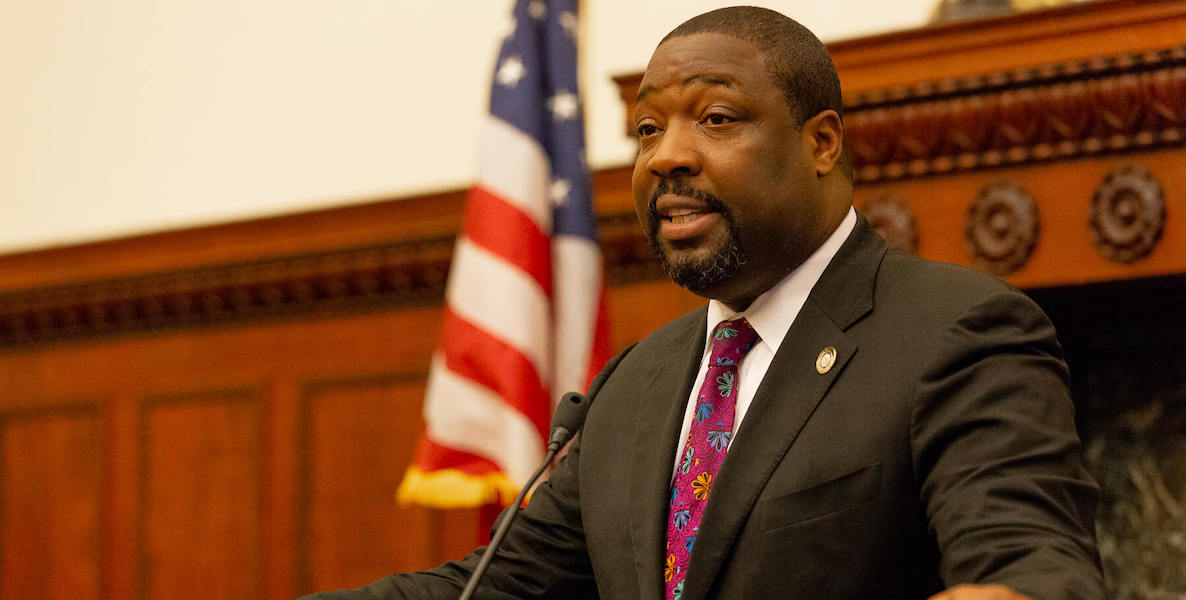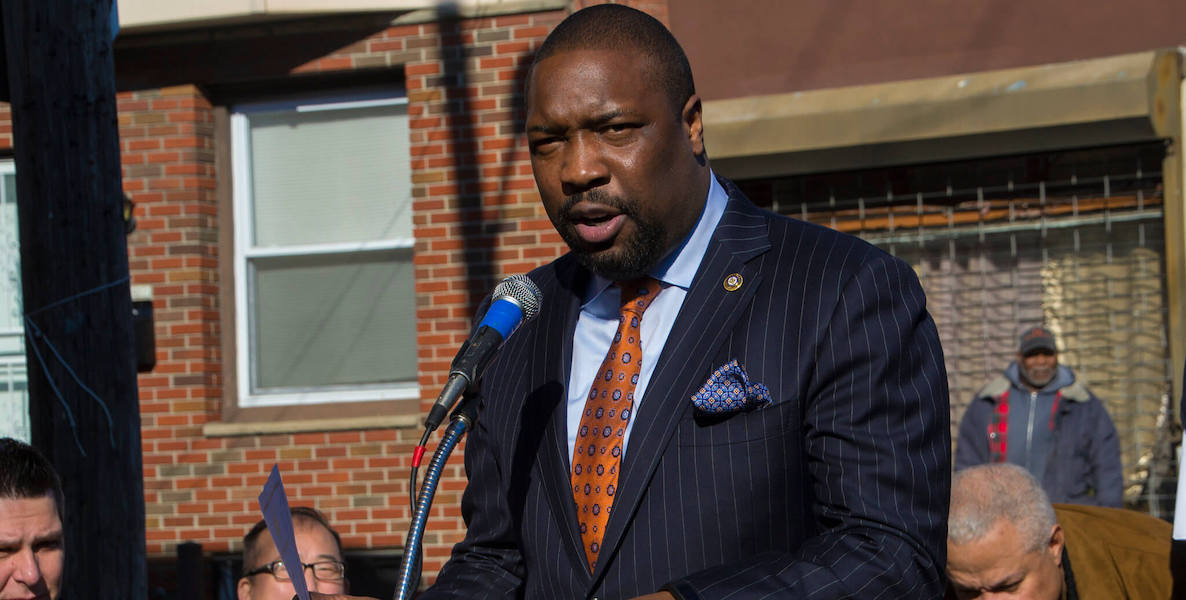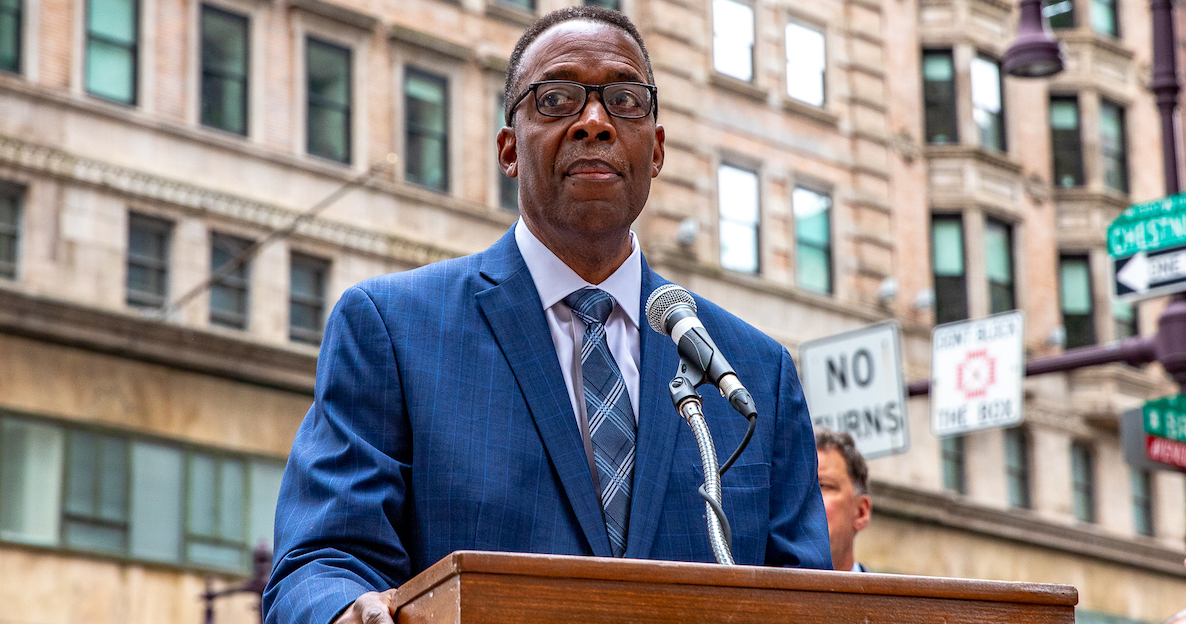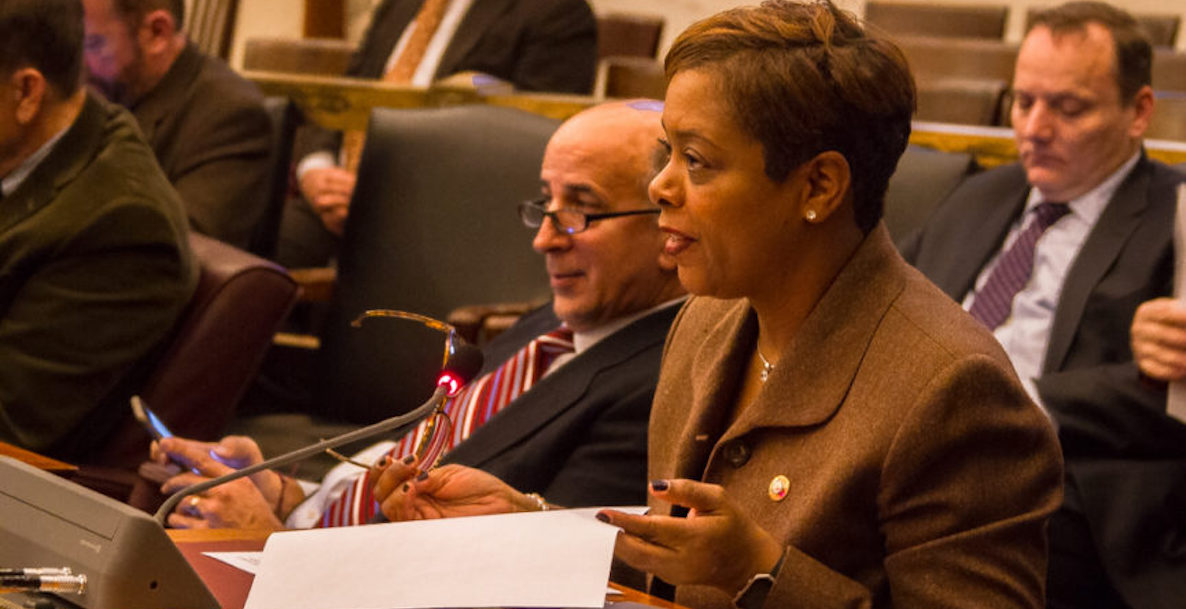[Update: On Friday morning, shortly after this story was published, Register of Wills Tracey Gordon announced the resignation of former Councilwoman Blondell Reynolds Brown. “I am grateful for the councilwoman’s preservation focus and efforts at my office, and I am confident that the much needed work the councilwoman started will continue,” Gordon said. “I wish her the best of luck in the next chapter of her career.”]
When it comes to matters of public integrity, why does it always feel like Groundhog Day in Philadelphia?
Yes, there’s our endless litany of perp walks, lawmaker morphed into lawbreaker for all to see. That’s bad enough. But, unlike in other cities, our most troubling betrayals of the public trust are not illegal.![]()
No, our most egregious acts are the ones that are perfectly legal, like the tradition of councilmanic prerogative that perverts the disposition of land sales, or the taking advantage of loopholes around DROP—a deferred retirement option for city workers that was never intended to apply to elected officials.
If it seems like such legal corruptions of our public life are always happening, it’s because that’s the way cultures work. Over a hundred years ago, muckraking journalist Lincoln Steffens labeled Philadelphia “corrupt and contented,” calling to our attention just how stubborn norms can be.
Ol’ Lincoln must have been gyrating in his grave last week, when former Councilmember Blondell Reynolds Brown applied to enroll in DROP, reversing her position opposing the controversial program from eight years ago, when she was on City Council.
What’s DROP, and why is Brown’s apparent about-face a violation of the public trust?
DROP stands for Deferred Retirement Option Plan, and it was adopted in the ’90s to help managers plan for staffers’ exits from city departments in advance.
It allows workers to pick a retirement date four years in the future and to start accruing pension payments in an interest-bearing account while still on the city payroll. Upon retirement, they receive a lump-sum payment—averaging in the hundreds of thousands of dollars.
If she’s truly to earn the “Shero” accolade and be an agent of change, Gordon ought to tell Reynolds Brown that there’s a difference between having the right to do something, and doing the right thing.
DROP was seen as a tool to more efficiently manage the city workforce.
According to the state fiscal oversight board PICA, the program has cost taxpayers between $237 million and $277 million since its inception. It was never intended to apply to elected officials, who are hired by the voters.
But a city solicitor finding ruled that electeds could indeed avail themselves of the “double dip,” so a slew of them participated in the charade of retiring for a day in order to collect their lump sum, only to come back out of retirement 24 hours later and continue to collect a salary with benefits.
![]() This is where our Groundhog Day syndrome kicks in. When Reynolds Brown recently said that her consideration of seeking a DROP windfall was “nobody’s business but mine,” it was, in its arrogant sense of entitlement, eerily reminiscent of a conversation I had eight years ago with her former colleague (and current behind-the-scenes power broker—because no one really retires from Philly politics) Marian Tasco.
This is where our Groundhog Day syndrome kicks in. When Reynolds Brown recently said that her consideration of seeking a DROP windfall was “nobody’s business but mine,” it was, in its arrogant sense of entitlement, eerily reminiscent of a conversation I had eight years ago with her former colleague (and current behind-the-scenes power broker—because no one really retires from Philly politics) Marian Tasco.
Tasco had just pretended to retire in order to collect $478,057, thanks to DROP. (Her Council colleagues at the time, Frank Rizzo Jr. and Frank DiCicco, had recently done likewise).
“That’s my money,” Tasco told me. “I’m entitled to it!” I told her you don’t need a law degree to know that partaking in this subterfuge of a fake retirement in order to pocket nearly a half-million bucks—on top of her six-figure Council salary—was simply wrong.
We had a heated exchange, which I wrote about:
Why don’t you run for City Council?” she said. “I wish you would. You’d see that this job is 24/7, that you’re out in the community at events every night. You wouldn’t be able to do it.”
“What are you talking about?” I responded. “What about your week off for Election Day? Or the five-week holiday recess? Or the two-month summer break? Or the week for President’s Day? Or Easter week? Or Columbus Day week? Or Flag Day?”
There was a pause. “We don’t get Flag Day off anymore,” she said—and I think I detected a playful laugh.
I liked Councilmember Tasco’s feistiness, and I respected her long years of public service, as I do Reynolds Brown’s. But that attitude—That’s my money! I’m entitled to it!—is a precise advertisement for an If it’s legal, I got mine mindset in Philly politics that has long been in desperate need of reform.
That attitude—“That’s my money! I’m entitled to it!”—is a precise advertisement for an “If it’s legal, I got mine” mindset in Philly politics that has long been in desperate need of reform.
How do we do that? By electing new people, yes, but also holding them accountable to a new way of thinking about public service. Because we’ve learned the hard way that, often, “fresh” and “new” in Philly politics has a way of ending up “old” and “incarcerated,” (See Fattah, Chaka) which only fuels public cynicism and apathy.
Which gets us to our new register of wills, Tracey Gordon.
There was a lot of excitement when, on election day last fall, Gordon upset Ron Donatucci, a DROP beneficiary himself and long the proud face of patronage in city government. The Inquirer’s Jenice Armstrong called Gordon her “newest Shero.” But now comes Gordon’s first real test.
She created a position for Reynolds Brown to preserve records in her office. If ![]() she’s truly to earn the “Shero” accolade and be an agent of change, Gordon ought to seize this moment and flip our tired script. She ought to tell Reynolds Brown that there’s a difference between having the right to do something, and doing the right thing.
she’s truly to earn the “Shero” accolade and be an agent of change, Gordon ought to seize this moment and flip our tired script. She ought to tell Reynolds Brown that there’s a difference between having the right to do something, and doing the right thing.
It is fully within Gordon’s power to give Reynolds Brown a choice: She can take advantage of DROP, or she can work in the register of wills’ office. She can’t do both. If Gordon does that, someone will have finally stood up and said enough is enough in this age of double and even triple-dipping.
After all, every day doesn’t have to be Groundhog Day.
The Fix is made possible through a grant from the Thomas Skelton Harrison Foundation. The Harrison Foundation does not exercise editorial control or approval over the content of any material published by The Philadelphia Citizen.
Photo courtesy Philadelphia City Council / Flickr








